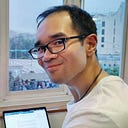Pathological Separation and the Healing of Christmas
Many months back, I was struck by author Neale Donald Walsch’s articulation of how the world became so chaotic…
Thousands of years ago, humans started losing their sense of close connection to the divine. Certain people in power put forward the ideology that God was someone far far away in the sky. Thus emerged a “separation theology,” which catalyzed the unraveling of both our psyches and our world.
First, it led to a sense of disconnection from the planet and other people, animals, and all of nature: a “separation cosmology.”
Then that led to a sense of separate selves — hence our notions of ids, egos, and superegos. Sometimes we’re our “good” selves and other times our “bad.” A “separation psychology.”
Which led to a sense of my-group and your-group: a “separation sociology.”
And finally, that led to a sense of me-and-my-tribe being better and more important than you-and-your-tribe, so let me make sure I get my needs met even if it’s at your expense — a “separation pathology.”
So we find ourselves in the thrall of countless dramas: personal, familial, communal, national, international, global. Each one subsumes the prior.
Well, it can certainly be argued that the global pandemic, in both how it started and how it continues, reflects lovelessness at the most fundamental level.
In ACIM, it’s said that we think we have many problems, but we actually have only one: our sense of separation from God.
The solution? Backtrack and remember this: The Kingdom of God is within you — scripture that appears in both the canonical gospel of Luke and the gnostic gospel of Thomas.
I’ve thought a lot about Christmas lately, and I think those words reflect its deepest meaning. That at any given moment, we can birth into this world God’s love as made manifest by our most loving selves.
Healing, wholeness, holiness. Etymologically, these terms all derive from the same root word.
Love is how we heal our splits and schisms within ourselves, with others, with our planet, and with our God. It’s how we become whole again. How we, as spiritual beings at our core, remember the ancient memory of our holiness. Of a time when, as very young children, before we were indoctrinated to the prevailing culture of a dog-eat-dog world of scarcity, competition, and separation, we were unconditionally loving — just like the newborn Christ.
This year, I’m spending Christmas at my mom’s provincial home of Jasaan, Philippines. I’m a city boy with city-boy sensibilities, but returning to my roots (on my mom’s side of the family) is refreshing. And between family, feathered friends, and furry friends all around (at least in our family compound), I can certainly learn to love Jasaan.
In the photo’s horizon is a church, perhaps the most appropriate symbol of an even deeper root: the divine. But like all Christian symbols, as significant and meaningful as they are, they are but external symbols. Still, ones that can help remind us of and point us to the Kingdom of God — that divine love — within us all.
This Christmas and always, may we celebrate the love of God in ourselves and one another.
